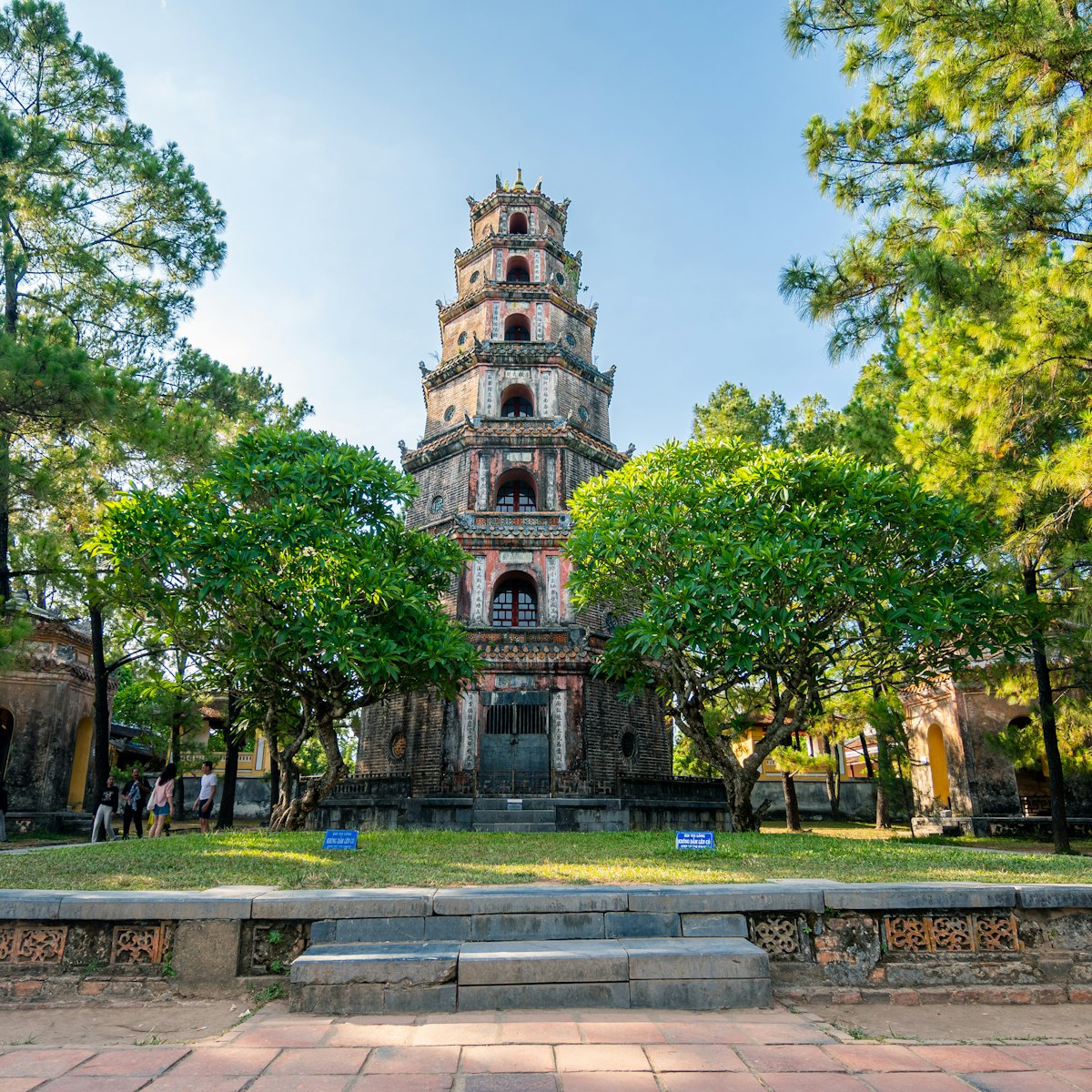Planned during Minh Mang’s reign (1820–40) but built by his successor, Thieu Tri, this majestic tomb, on the west bank of the Perfume River, is renowned for its architecture and sublime forest setting. The Honour Courtyard is reached via three gates on the eastern side of the wall; three granite staircases lead from here to the square Stele Pavilion (Dinh Vuong). Sung An Temple, dedicated to Minh Mang and his empress, is reached via three terraces and the rebuilt Hien Duc Gate.
On the other side of the temple, three stone bridges span Ho Trung Minh (Lake of Impeccable Clarity). The central bridge was for the emperor’s use only. Toa Minh Lau (Pavilion of Light) stands on the top of three superimposed terraces that represent the ‘three powers’: the heavens, the earth and water. To the left is the Fresh Air Pavilion, to the right, the Angling Pavilion.
From a stone bridge across crescent-shaped Ho Tan Nguyet (Lake of the New Moon), a monumental staircase with dragon banisters leads to Minh Mang’s sepulchre. The gate to the tomb is opened only once a year on the anniversary of the emperor’s death.
The tomb is in An Bang village, 12km from Hue.





